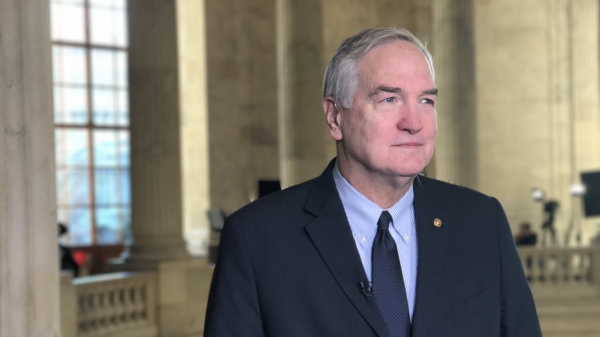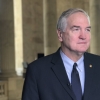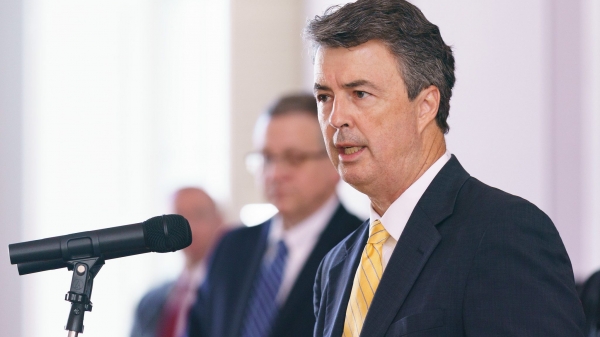Staff Report
From the Office of Attorney General Luther Strange
(MONTGOMERY)—Attorney General Luther Strange called a ruling today by the U.S. Supreme Court “a tremendously important victory for the rights of state legislatures to determine district lines for voting.” In a unanimous decision in Perry v. Perez et al., the U.S. Supreme Court ruled that a federal trial court was wrong to disregard the Texas Legislature’s plan to redraw the State’s district lines for the upcoming 2012 elections. The State of Alabama filed an amicus brief in support of Texas that was joined by several other states.
Following the 2010 Census, the State of Texas redrew state legislative and Congressional district lines due to significant changes in its population. Section 5 of the federal Voting Rights Act requires Texas, Alabama, and several other States to seek permission to change their election laws from either the U.S. Justice Department or the U.S. District Court for the District of Columbia. As required by Section 5, Texas submitted its new district maps for preclearance, filing this request with the U.S. District Court for the District of Columbia. But, while the State’s preclearance request was pending, the U.S. District Court for the Western District of Texas prepared its own redistricting plans, which expressly disregarded the plans already drawn by the Legislature.
The State of Alabama’s amicus brief to the U.S. Supreme Court was joined by the States of Virginia, Florida, South Carolina, Arizona, Georgia, Michigan and Louisiana, which are all states covered in whole or part by Section 5 of the Voting Rights Act.
Alabama’s brief argued that the U.S. District Court for the Western District of Texas was wrong to disregard the legislature’s plans. “On the facts of this case, the common sense solution is to defer to the State’s plan except to the extent it needs to be modified for likely violations of federal law.” The brief also observed that, “the Constitution expressly places the responsibility for congressional apportionment on state legislatures (and) because the lower court did not find any likely violations of federal law, the effect of the lower court’s decision is to elevate the unsubstantiated allegations of private litigants over the plans adopted by a majority of the Texas Legislature.”
In its ruling today, the U.S. Supreme Court agreed with Alabama’s brief.
The U.S. Supreme Court held: “To avoid being compelled to make such otherwise standardless decisions, a district court should take guidance from the State’s recently enacted plan in drafting an interim plan. That plan reflects the State’s policy judgments on where to place new districts and how to shift the existing ones in response to massive population growth.” The U.S. Supreme Court went on to note in its ruling that even though preclearance has not yet been granted, “that does not mean that the plan is of no account or that the policy judgments it reflects can be disregarded by a district court drawing an interim plan. On the contrary, the state plan serves as a starting point for the district court. It provides important guidance that helps ensure that the District Court appropriately confines itself to drawing interim maps that comply with the Constitution and the Voting Rights Act, without displacing legitimate state policy judgments with the court’s own preferences.”





















































